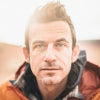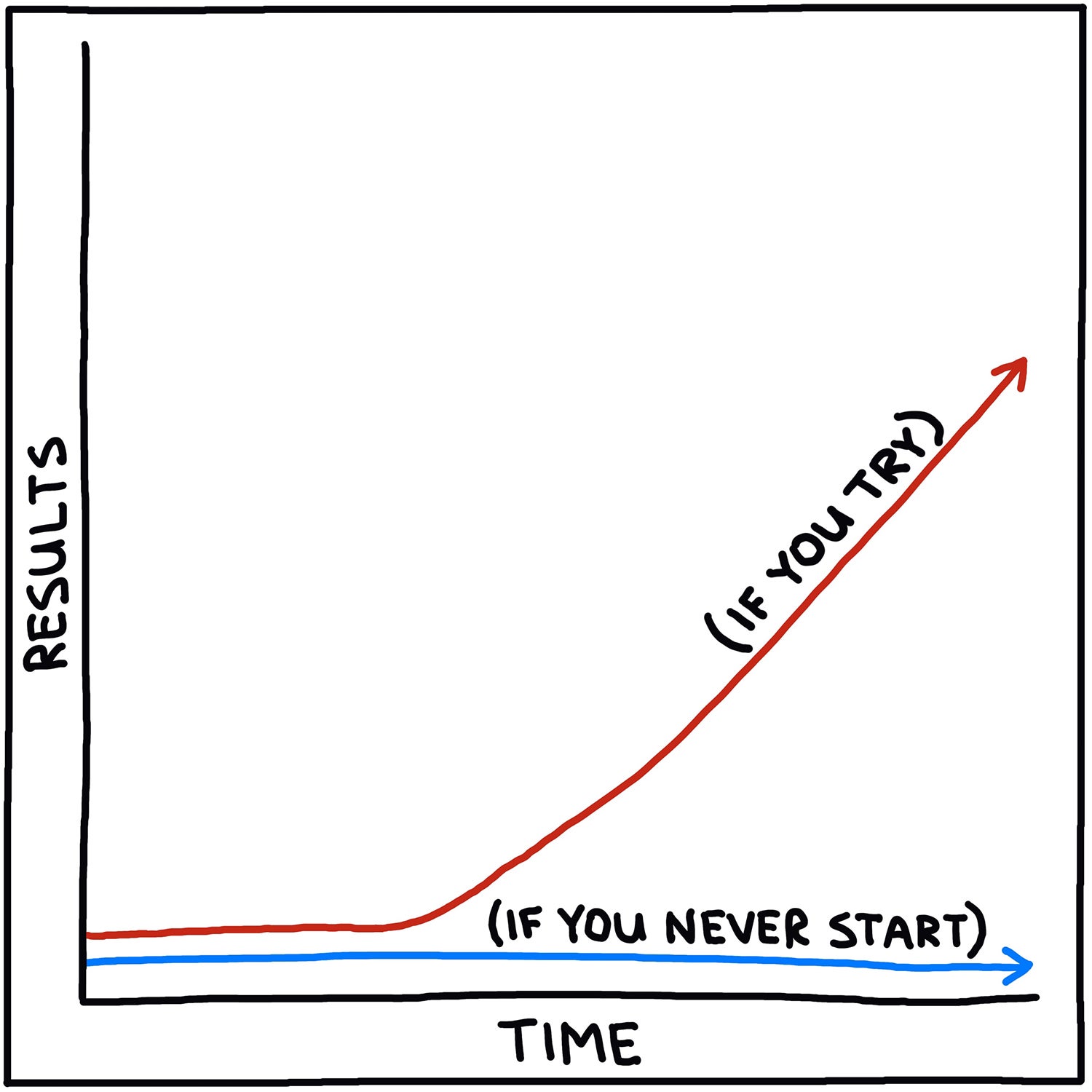I was talking with a writer who is also a runner the other day, and she asked me about the hardest part of the creative process. I blurted out something about the similarities between the two: the creative process and running. This is something I actually believe, even if I was less-than-eloquent when trying to verbalize it over the phone (sorry, Morgan). So I thought I’d elaborate, using some slightly edited (or not edited at all) illustrations from my book .
1. No one’s making you start doing it.
Running, like creativity, is a self-motivated endeavor. The act of writing a book (or a poem or a song or a short story) or making a painting (or a short film or a block print) takes effort. In both cases, it is much easier to binge-watch a new show or open TikTok and make an hour or two disappear.
Nobody’s making you go for a run today or train for an upcoming race, and nobody is making you work on a creative thing. Unless you have a publishing contract, in which case they’re still not making you work on it—but legally, you’ve promised to complete it. Which is maybe why this chart works as well for running as it does for, say, writing a book, with a few minor edits:
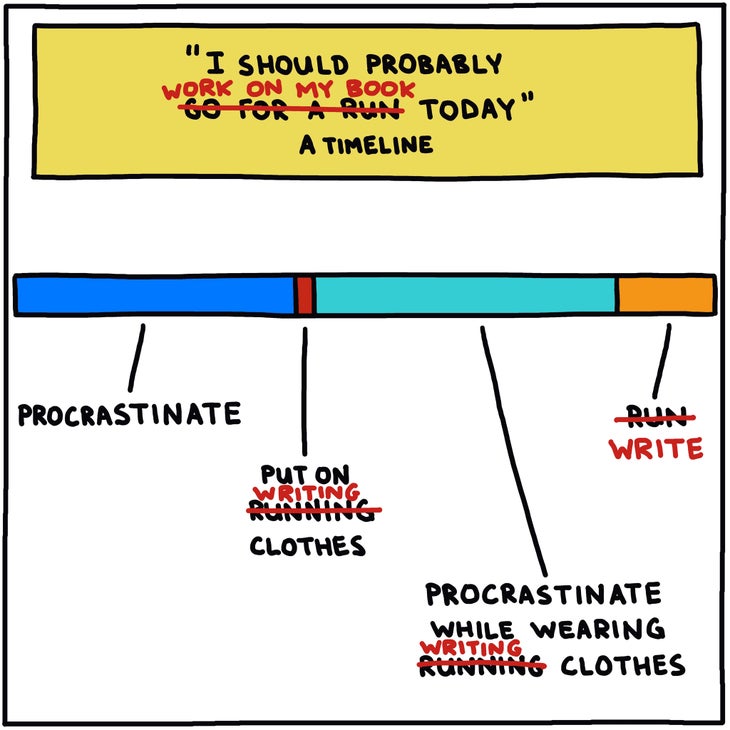
2. No one’s making you finish it, either.
Yes, it takes courage to start making a film, or writing a memoir, or to announce you’re training for your first half-marathon (even if you’re just announcing it to yourself). Does it take courage to finish the film/memoir/race? Sure, but also just a shitload of good old-fashioned grit.
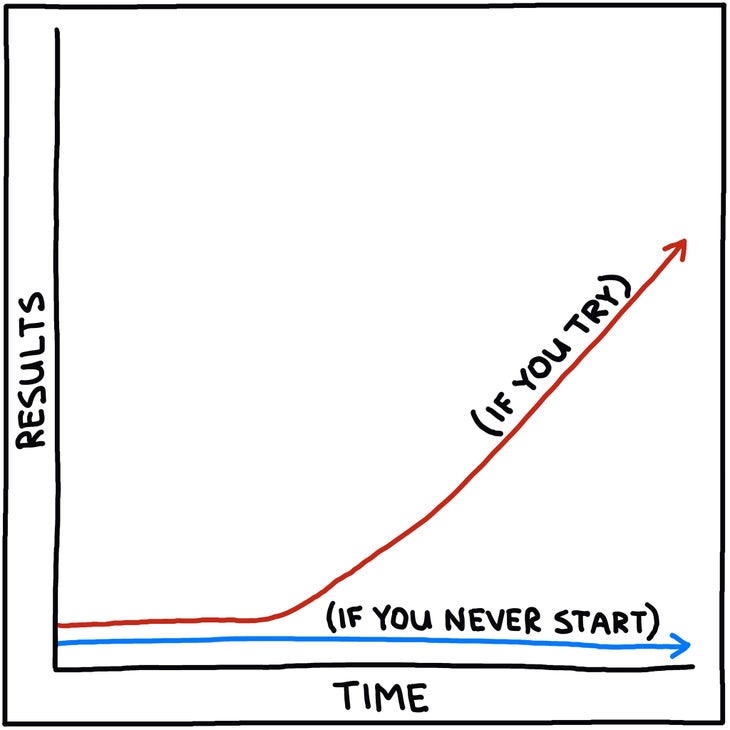
3. It’s easier to start small.
I was just watching a video by Tim Grahl about how many writers make the mistake of trying something too ambitious their first time. In the video, he essentially asks, would you pick Mt. Everest as your first mountain climb, if you had never climbed a mountain or even camped before? So maybe don’t use Game of Thrones as the model for your first book, or the Leadville 100 as your first trail run (or, OK, the Boston Marathon for your first road run)? Start with writing a short story, or a novella, as you’d use a two- or three-mile run to see if you liked it enough to try a half-marathon. Seth Godin’s creative advice of applies to running too.
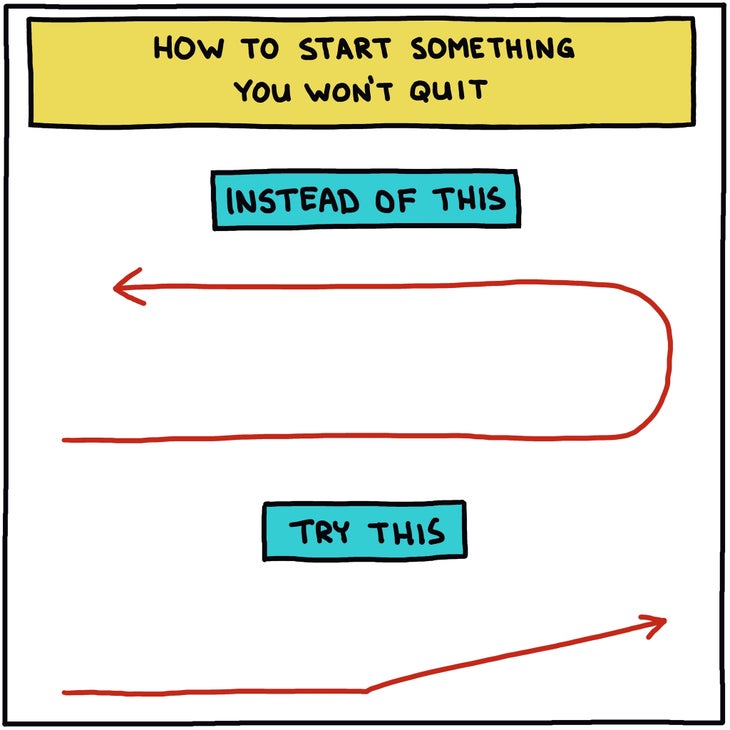
4. You never know how it’s going to go.
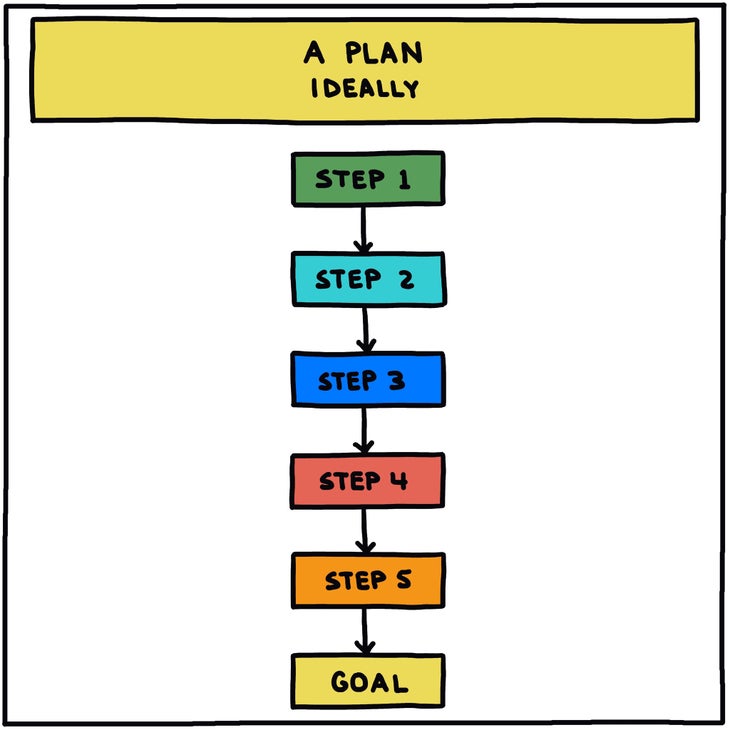
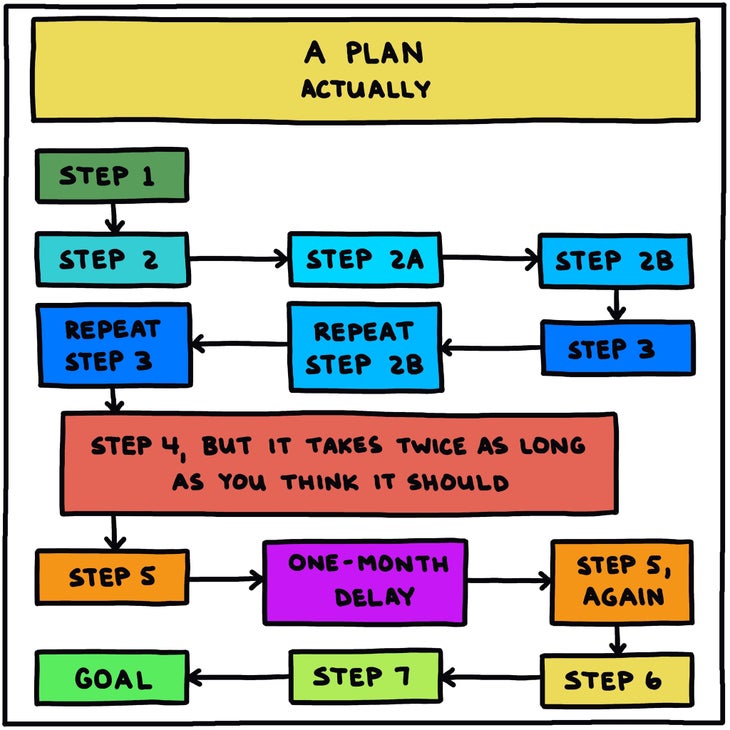
5. It’s uncomfortable, but the more you do it, the less you notice the discomfort.
Here’s Mario Fraioli, running coach and writer of :
“If you want to be good at something, you’ve got to be at it for a long time. There are people who’ll run for 10 or 12 weeks at a time, and then for whatever reason, things sort of fall off the rails for a while. Then, when they try to get back into it, it’s a lot harder. I’m a huge believer in consistency, which doesn’t mean you need to train at the same level throughout the year, but you need to develop those habits.”
And here’s Annie Dillard from her book :
“A work in progress quickly becomes feral. It reverts to a wild state overnight. It is barely domesticated, a mustang on which you one day fastened a halter, but which now you cannot catch. It is a lion you cage in your study. As the work grows, it gets harder to control; it is a lion growing in strength. You must visit it every day and reassert your mastery over it. If you skip a day, you are, quite rightly, afraid to open the door to its room. You enter its room with bravura, holding a chair at the thing and shouting, “Simba!”
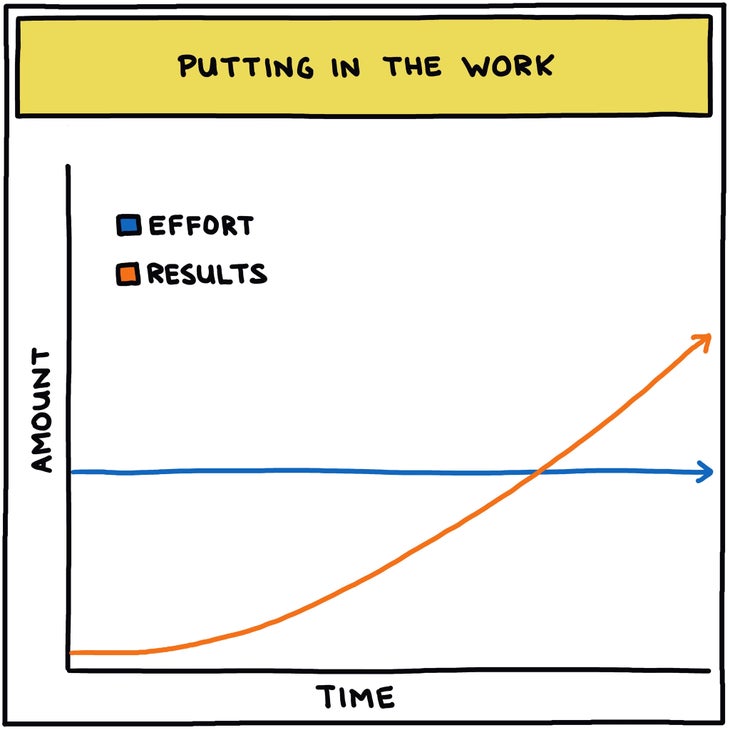
6. The idea is the easy part.
Question 1: What’s easier, putting in the hours and work required to run a marathon, or thinking to yourself, “I’d like to run a marathon someday”?
Question 1a: Same as question 1, except substitute “write a book” for “run a marathon”
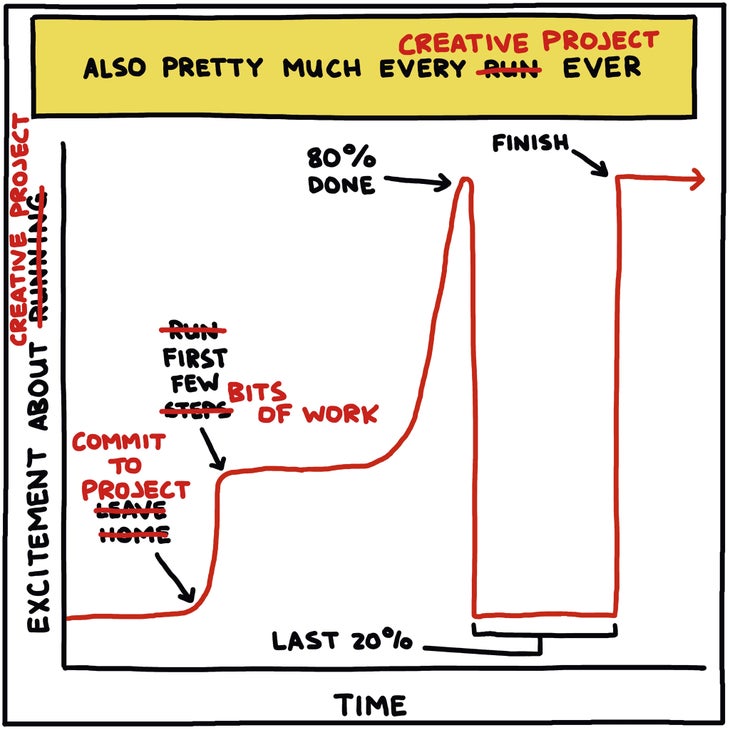
7. Inspiration is not a strategy.
Inspiration is great, but it won’t do the work for you. In creative work and running, inspiration is a spark, not a fire. Fear might work as a motivator, though.
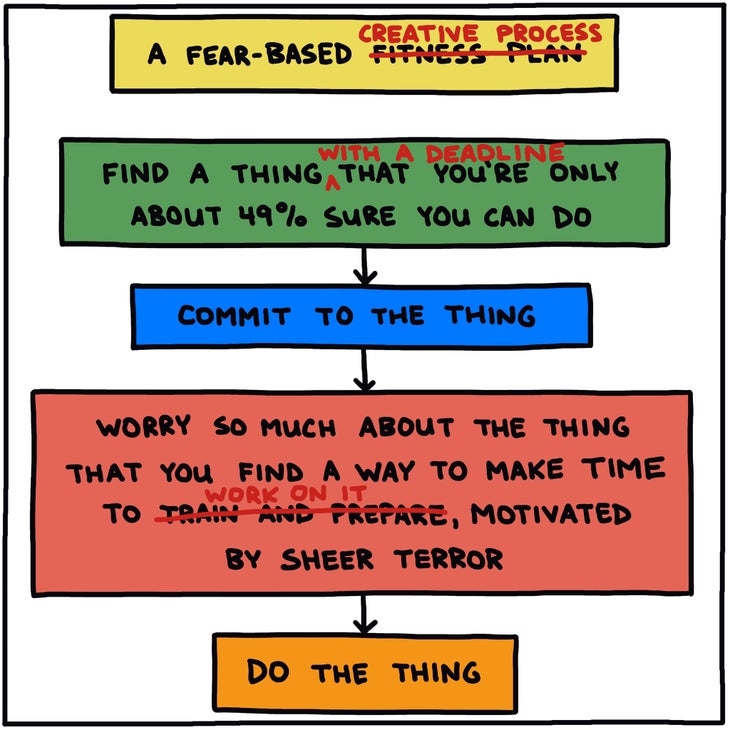
8. In the end, the work itself is often the reward.
Speaking from personal experience: the race lasts a few minutes or hours, which is a memory, but in preparing for the race, you get hours and hours of experiences, fun moments, low points, maybe some good sunrises and sunsets, conversations with friends who joined you, progress, dreams, and probably several dozen runner’s highs. Even if the race doesn’t go as well as you’d hoped, you still get to keep those memories.
The writing of a book, or finding the exact right song to go with your video footage, or shooting fifty photos just as the golden hour is peaking, is hard work, but no one can write a negative Goodreads review, or leave a nasty YouTube comment, on those experiences. You might look back on your work in ten years and wish you’d written a section differently, or let a scene breathe a little more, but you probably won’t have much regret about the time you spent dreaming and typing, or standing out there with your camera at dusk, waiting for the light to be perfect.
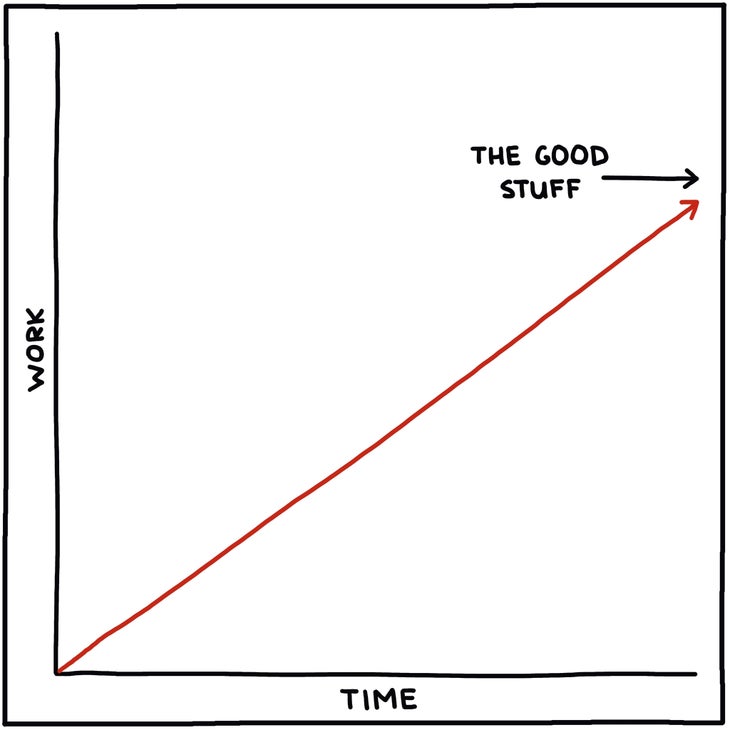
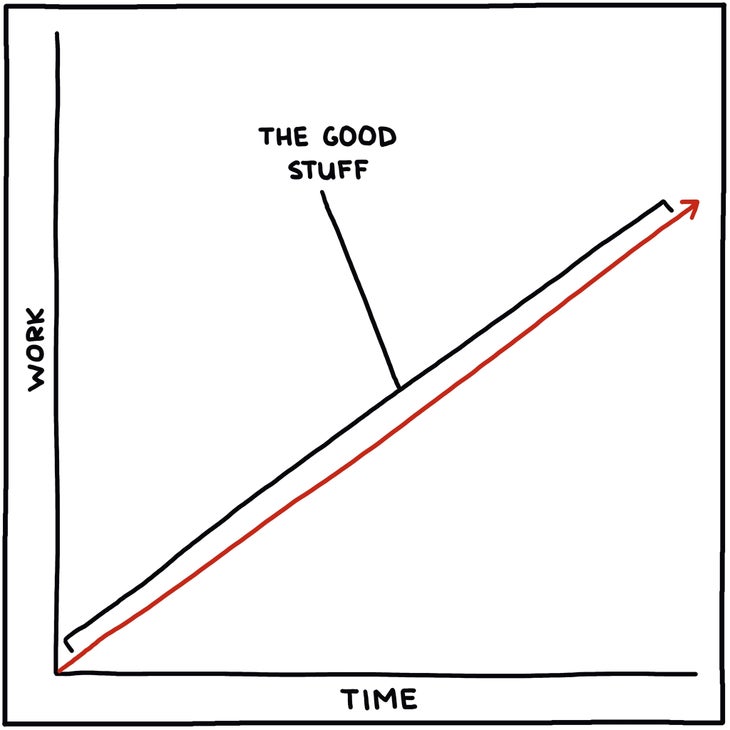
My new book, MAKE IT: 50 Myths And Truths About Creating, is available .

